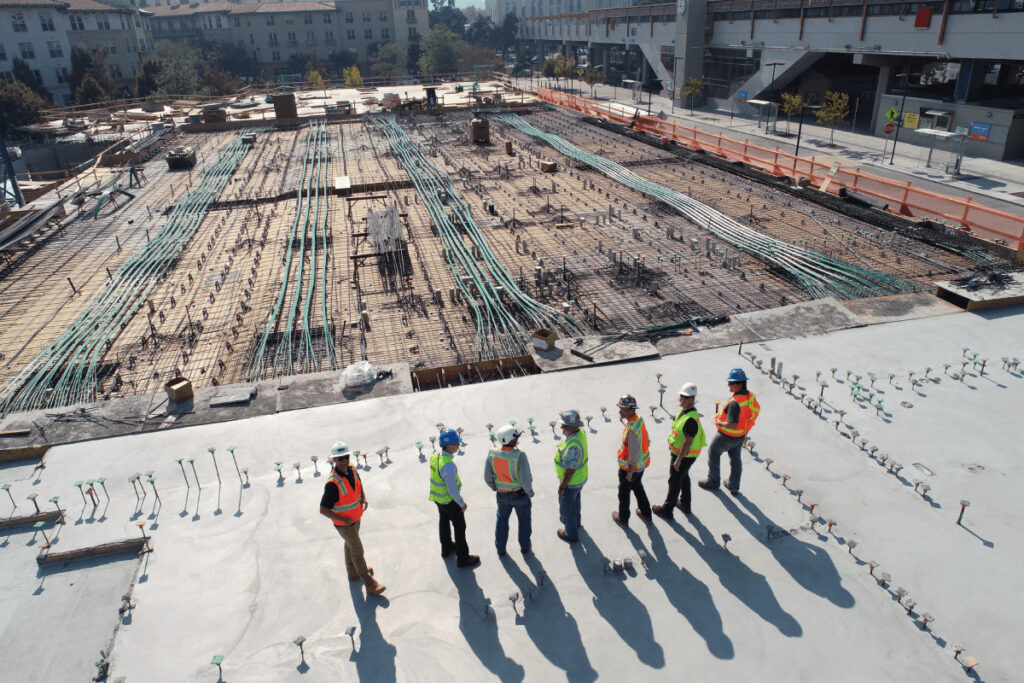Introduction
Building construction projects are complex undertakings that require careful planning, coordination, and management. Experts say that from the initial design phase to the final completion of the project, there are numerous factors to consider, including budget, timeline, materials, and labor. Without effective management, these projects can quickly become overwhelming and lead to costly mistakes and delays.
This is where construction project management comes in. Project management involves the planning, organizing, and controlling of resources to achieve specific project goals. In the context of building construction, project management encompasses a range of activities, including project planning, cost estimation, scheduling, quality control, and risk management.
In this article, we will explore the need for construction project management and why it is essential for the success of building projects. He will also discuss the benefits of effective project management, common challenges, and how to overcome them.

The Benefits of Construction Project Management
Effective construction project management can bring numerous benefits to building projects. Here are some of the key advantages:
- Improved Planning and Coordination: One of the primary benefits of project management is improved planning and coordination. A project manager can help ensure that all aspects of the project are properly planned and coordinated, from the initial design phase to the final completion of the project. This can help prevent delays and ensure that the project is completed on time and within budget.
- Better Cost Control: Project managers are responsible for creating and maintaining project budgets. By monitoring project costs and implementing cost-saving measures, project managers can help ensure that the project stays within budget and does not exceed its allocated funds.
- Enhanced Communication: Effective communication is essential for the success of any project. Project managers can help facilitate communication between different stakeholders, including contractors, suppliers, and project owners. This can help ensure that everyone is on the same page and that any issues or concerns are addressed in a timely manner.
- Improved Quality Control: Quality control is essential for ensuring that building projects meet the required standards and specifications. Project managers can help implement quality control measures, including inspections and testing, to ensure that the project meets the necessary quality standards.
- Risk Management: Construction projects are inherently risky, with numerous potential risks and uncertainties. Project managers can help identify and assess these risks and implement risk management strategies to mitigate them. This can help prevent costly mistakes and delays and ensure that the project is completed successfully.
Common Challenges in Construction Project Management
While construction project management can bring many benefits, it is not without its challenges. Here are some of the common challenges faced by project managers in construction projects:
- Time Management: One of the biggest challenges in construction project management is time management. Building projects often have tight schedules, and any delays can have significant consequences. Project managers must carefully manage project timelines and ensure that all tasks are completed on time.
- Cost Management: Cost management is another significant challenge in construction project management. Building projects can be costly, and project managers must carefully monitor project costs and implement cost-saving measures where possible.
- Communication: Communication can be a challenge in any project, but it is particularly critical in construction projects. With so many different stakeholders involved, effective communication is essential to ensure that everyone is on the same page.
- Safety: Construction projects can be dangerous, with numerous potential safety hazards. Project managers must prioritize safety and implement safety measures to protect workers and minimize the risk of accidents.
- Quality Control: Maintaining quality control is essential for ensuring that building projects meet the required standards and specifications.
FAQs About Construction Project Management
- What is construction project management?
Construction project management involves the planning, organizing, and controlling of resources to achieve specific project goals. In the context of building construction, project management encompasses a range of activities, including project planning, cost estimation, scheduling, quality control, and risk management.
- Why is construction project management important?
Construction project management is essential for the success of building projects. Effective project management can help ensure that projects are completed on time, within budget, and to the required quality standards. It can also help prevent costly mistakes and delays and minimize the risk of accidents.
- What are the key benefits of construction project management?
The key benefits of construction project management include improved planning and coordination, better cost control, enhanced communication, improved quality control, and risk management.
- What are the common challenges in construction project management?
Common challenges in construction project management include time management, cost management, communication, safety, and quality control.
- How can these challenges be overcome?
These challenges can be overcome by creating a detailed project schedule and timeline, monitoring project costs and implementing cost-saving measures, establishing clear lines of communication, prioritizing safety and implementing safety measures, and implementing quality control measures, including inspections and testing.
Conclusion
In conclusion, construction project management is essential for the success of building projects. Effective project management can bring numerous benefits, including improved planning and coordination, better cost control, enhanced communication, improved quality control, and risk management. However, project managers must also be aware of the common challenges faced in construction project management, including time management, cost management, communication, safety, and quality control. By implementing the strategies outlined in this article, project managers can overcome these challenges and ensure the successful completion of building projects.



